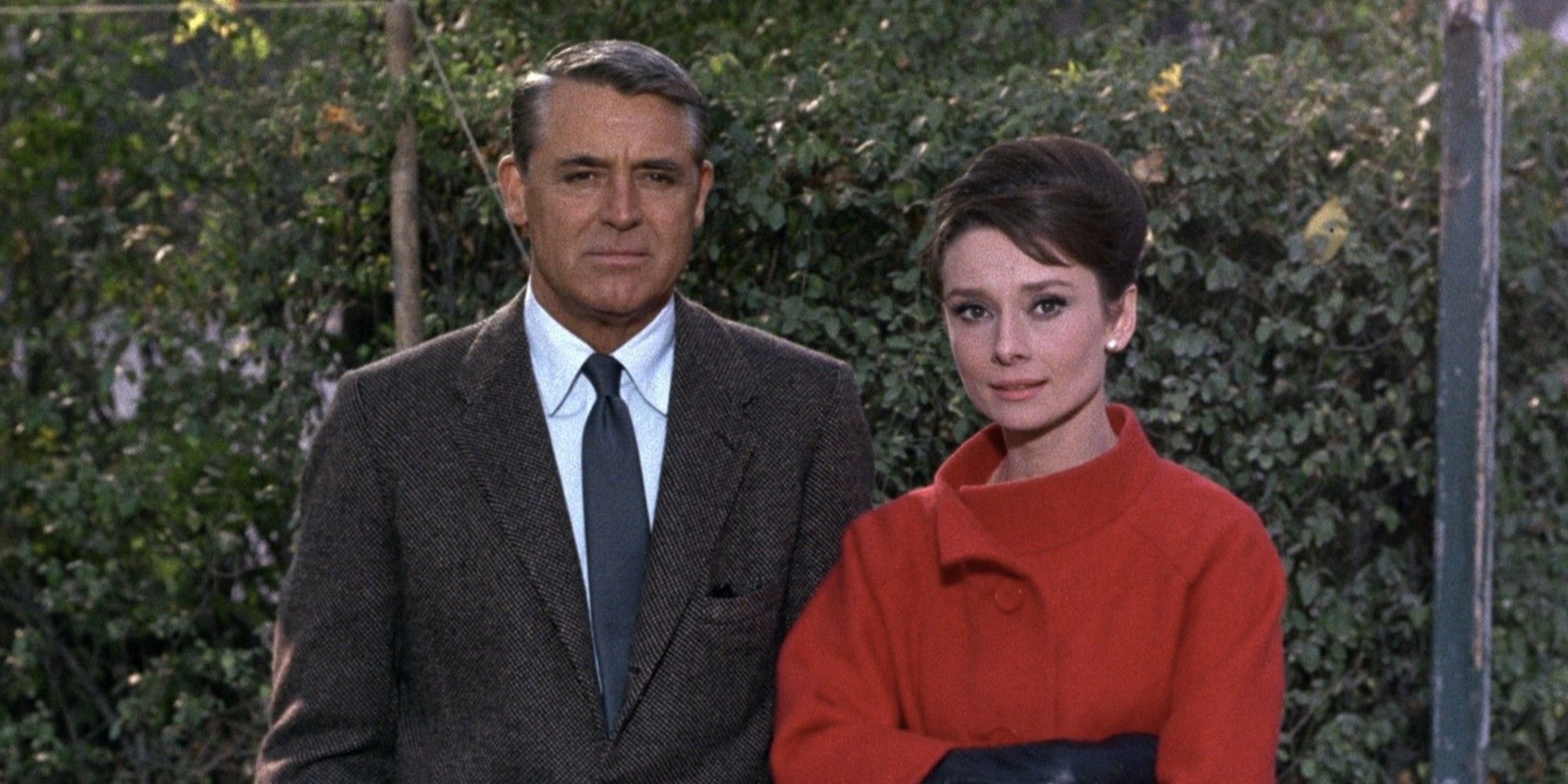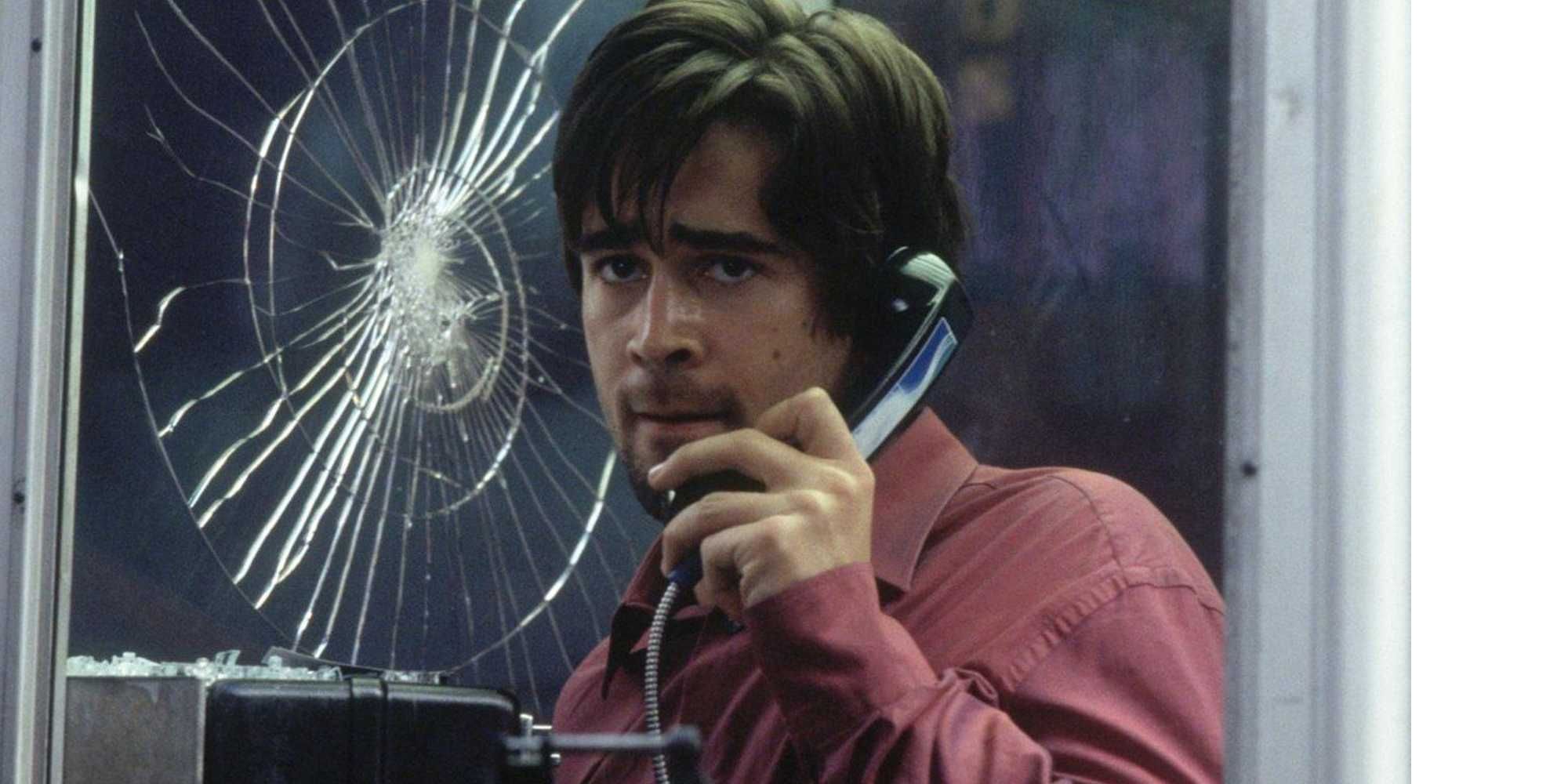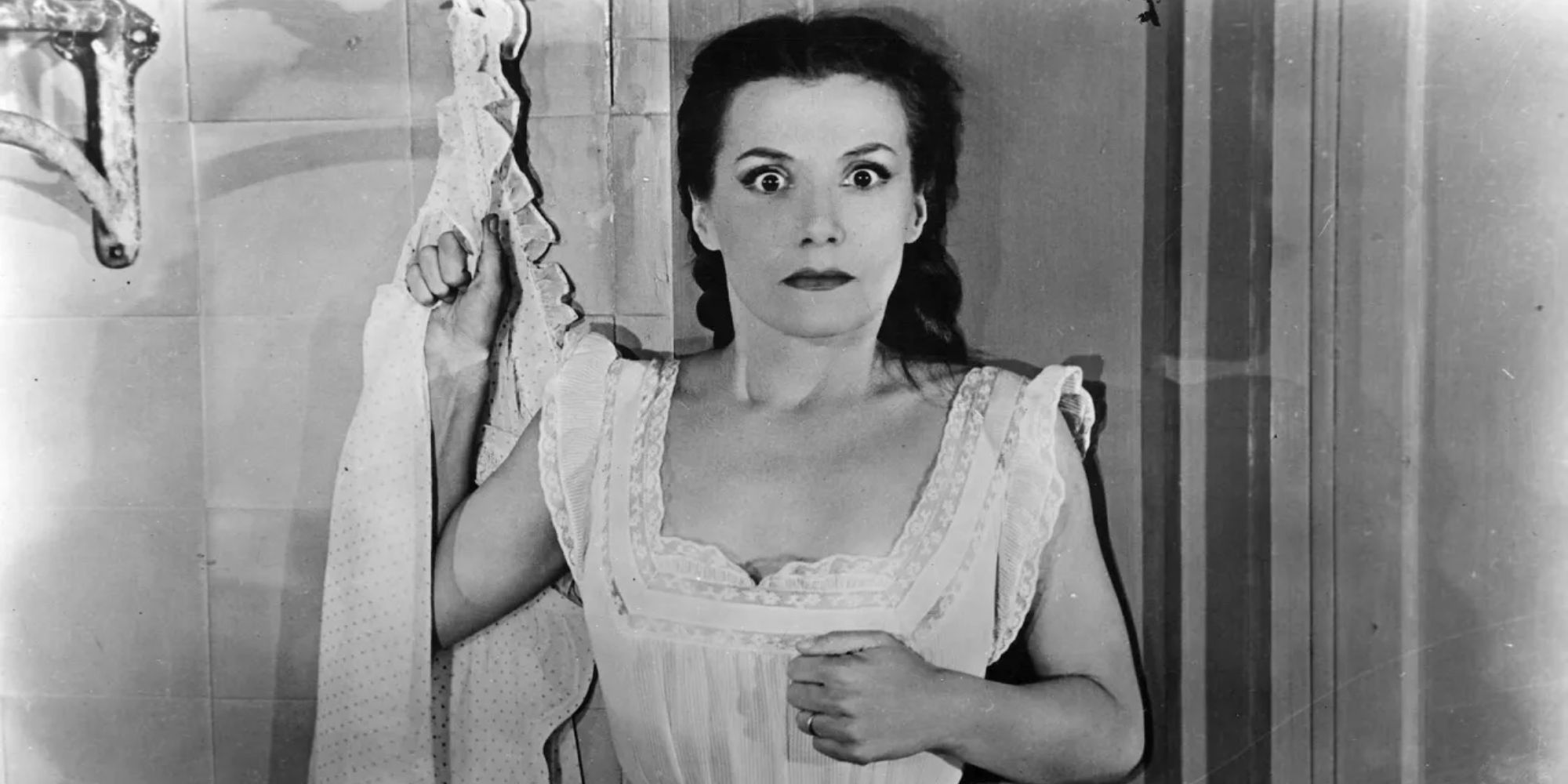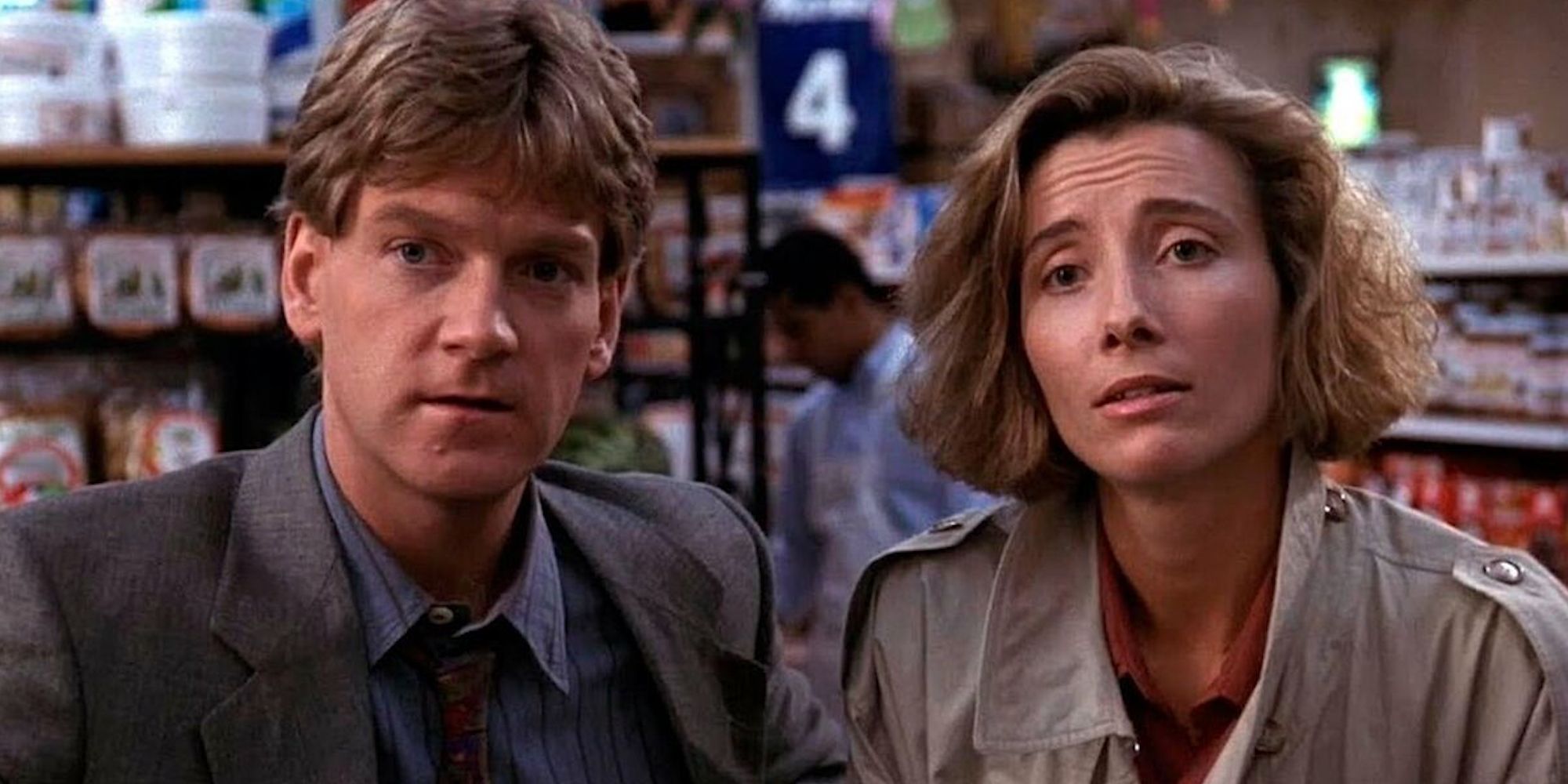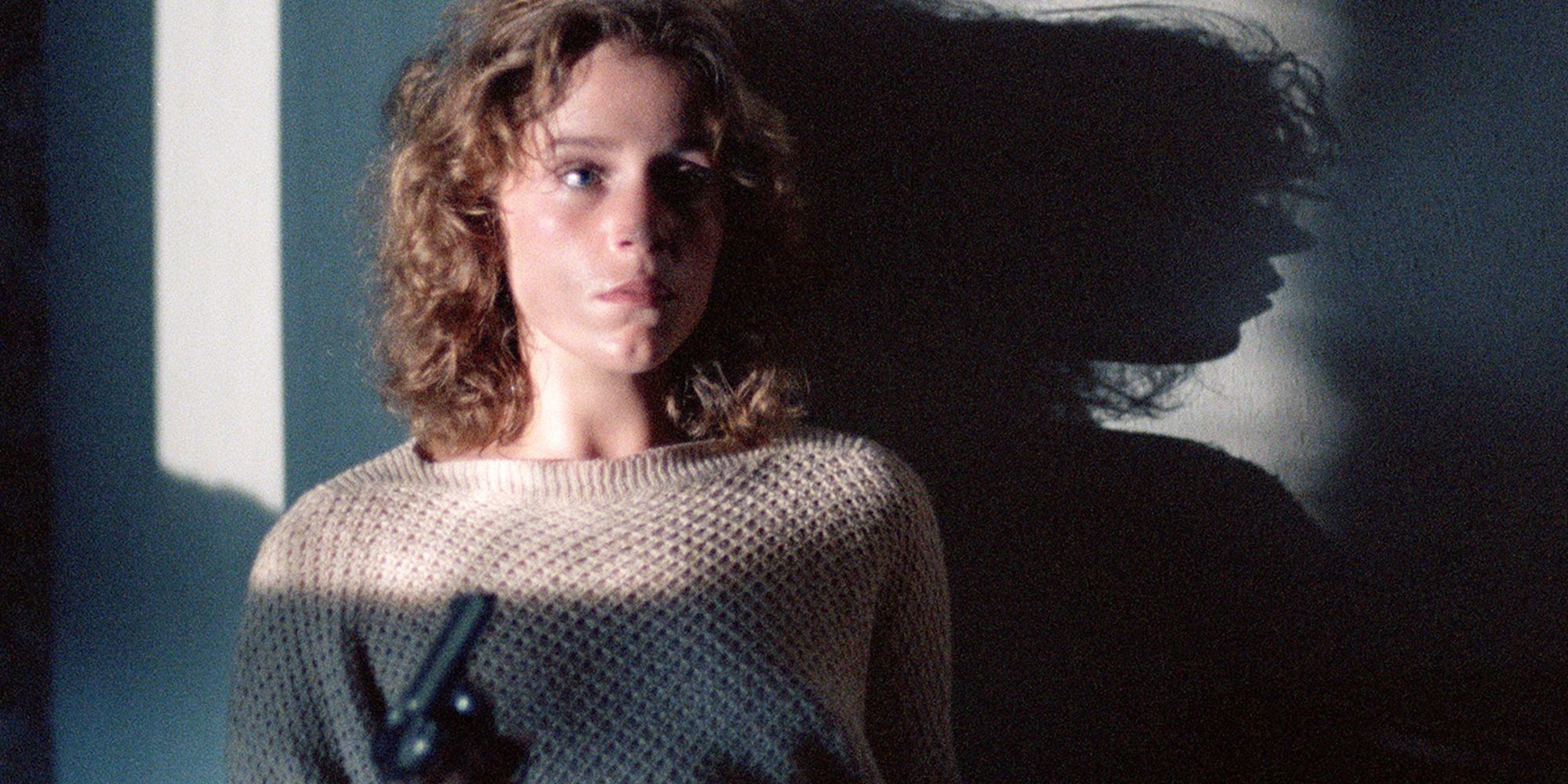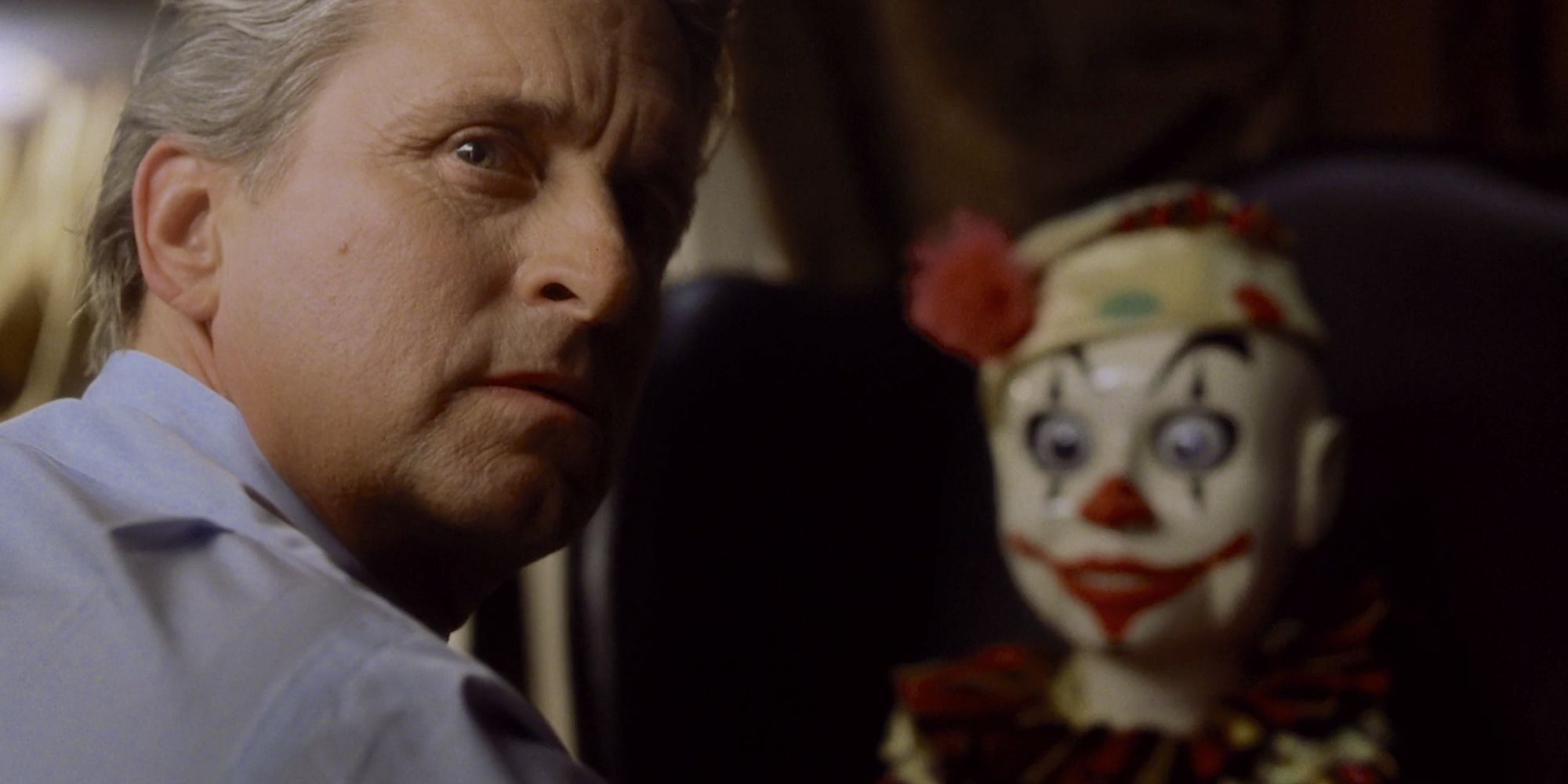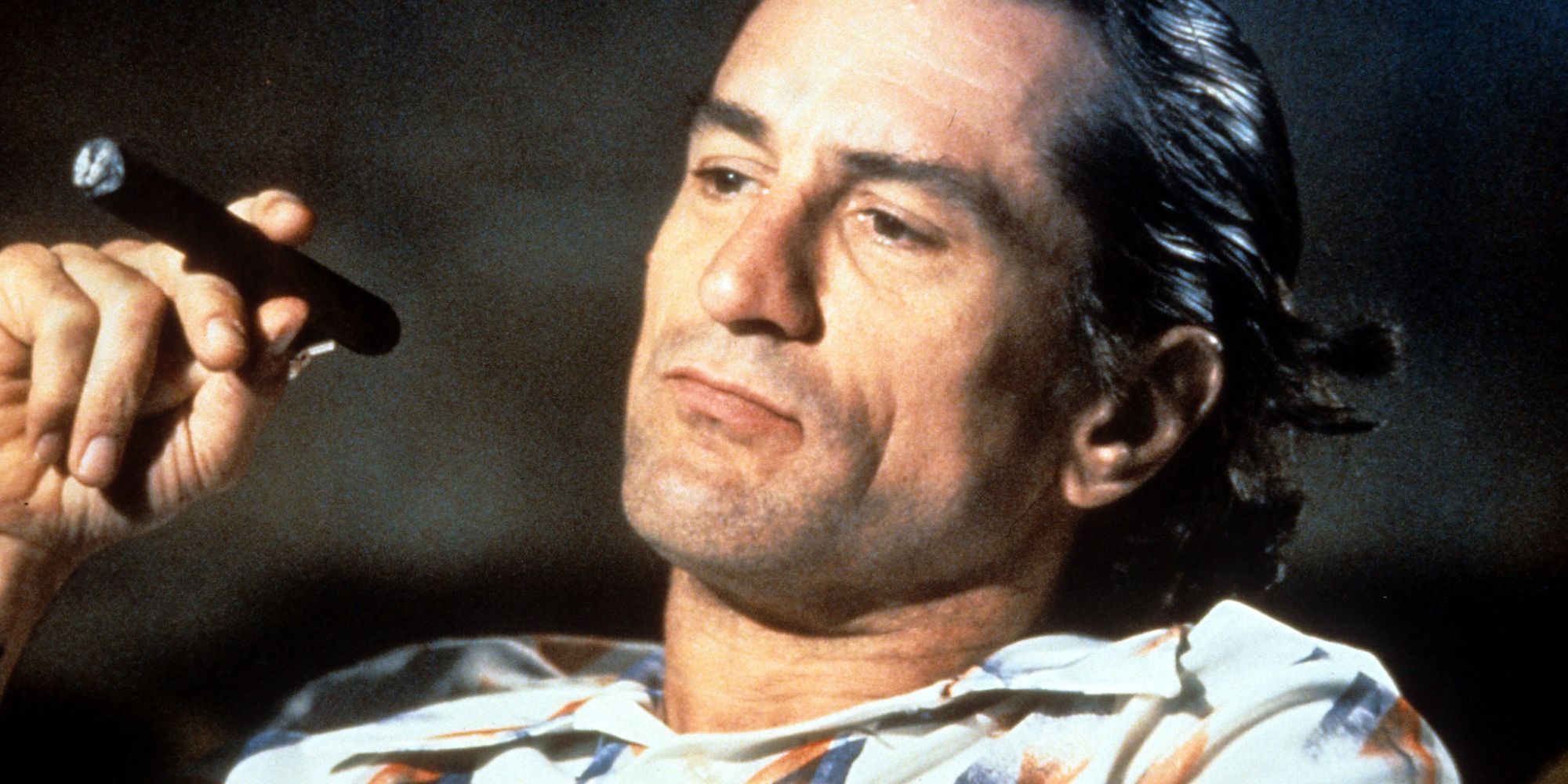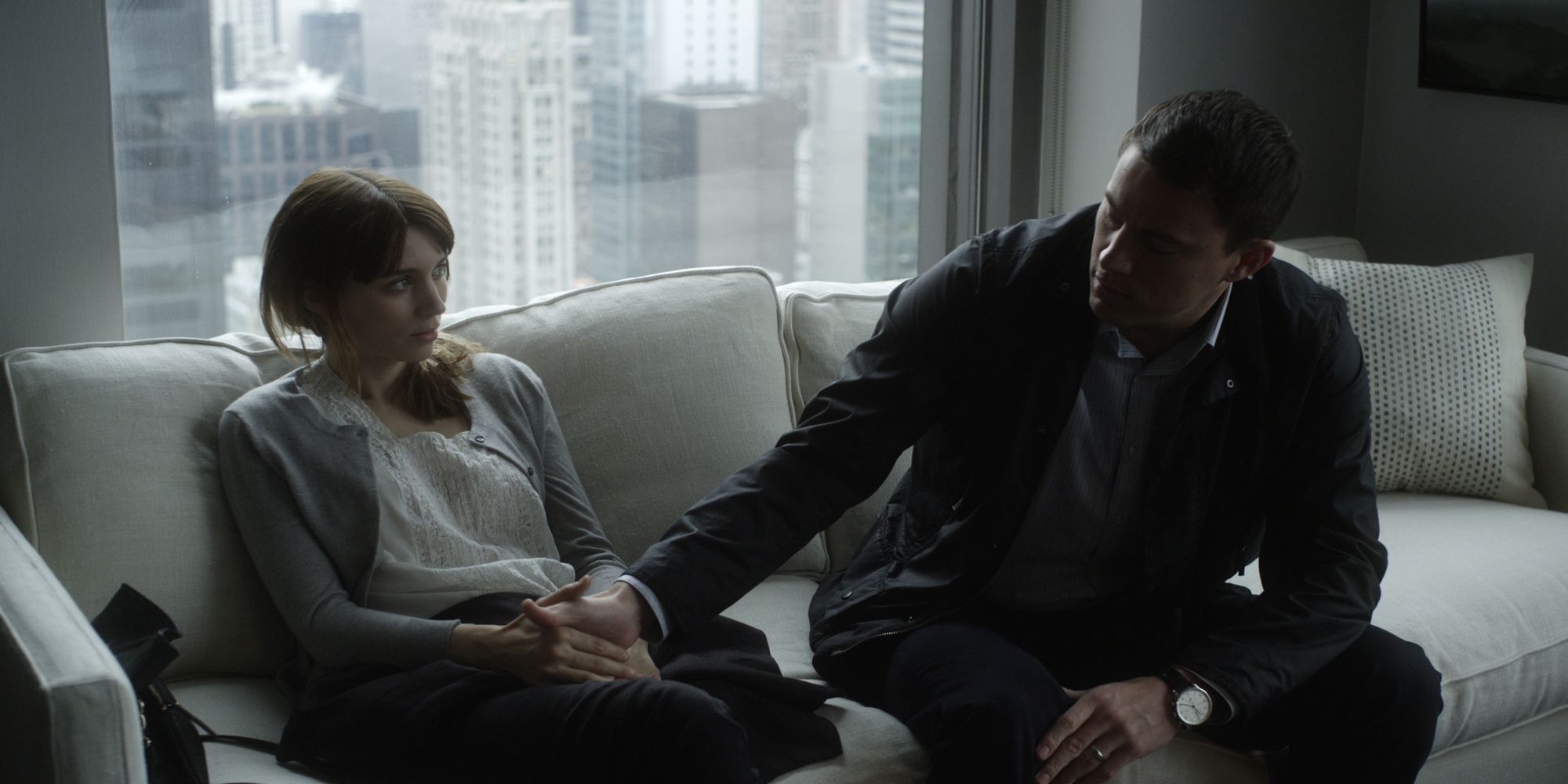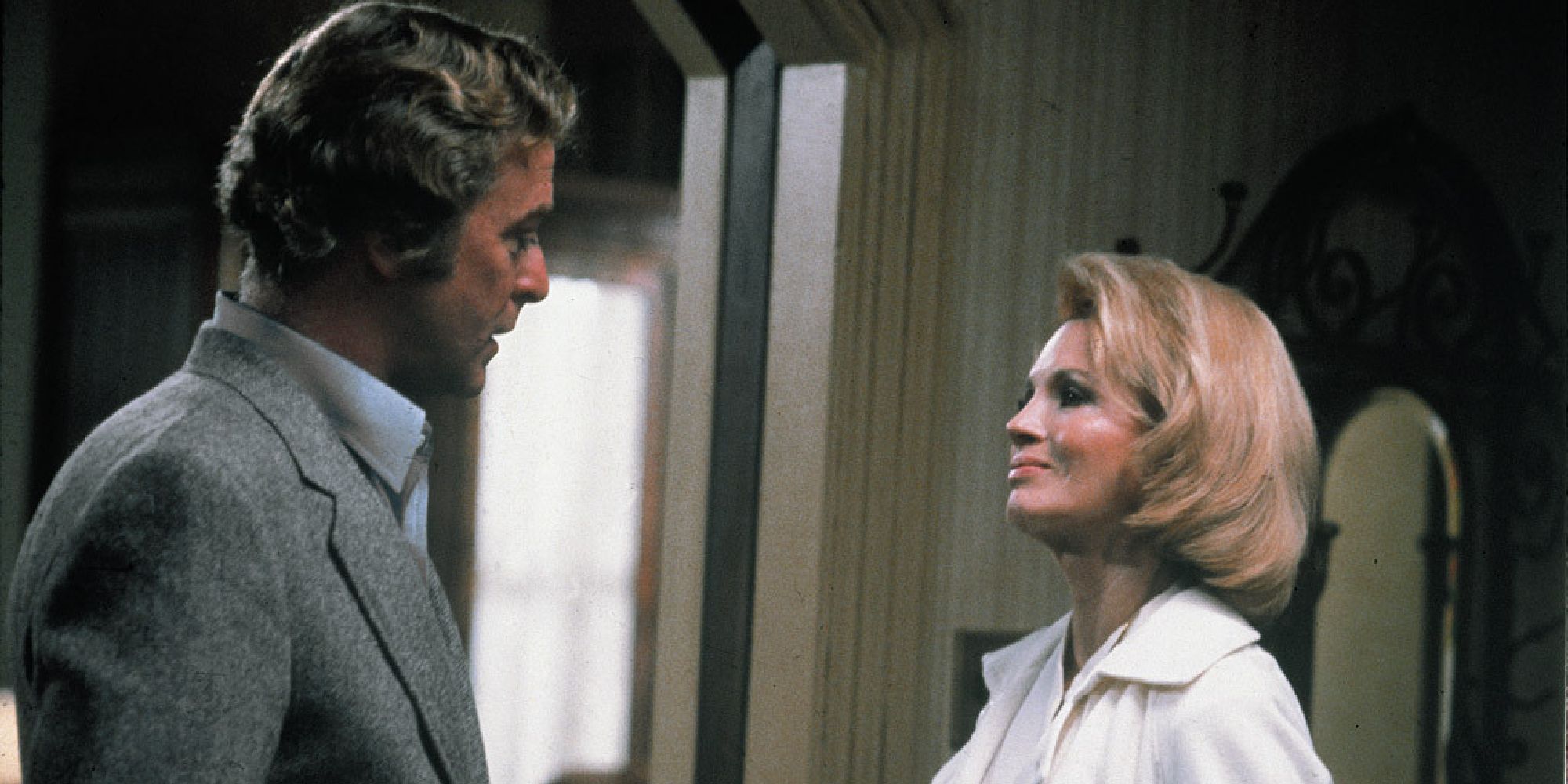The Master of Suspense, Alfred Hitchcock, is one of the most influential directors ever and a founding figure in the horror and thriller genres. Few filmmakers in his day were more daring or more skilled at operating within the limits of the Hays Code. Although limited in what he could show on screen, over his multi-decade career, Hitchcock produced several classics, from Psycho to Vertigo to North by Northwest.
Nowadays, “Hitchcockian” has become shorthand for the many films that draw inspiration from Hitch’s work. These kinds of movies usually feature ample plot twists, protagonists that can’t be trusted, mistaken identities, ordinary people in dangerous situations, and nail-biting tension. The best Hitchcockian thrillers understand the fundamentals of Hitchcock’s movies while adding their own flavor to his formulas. From Park Chan-wook to Brian De Palma, these are the directors that best wear the Master’s mantle.
10 ‘Decision to Leave’ (2022)
Director: Park Chan-wook
South Korean maestro Park Chan-wook, the mind behind Oldboy and The Handmaiden, directed this stylish drama thriller. After a man is found dead at the foot of a mountain, insomniac detective Jang Hae-jun (Park Hae-il) and his partner, Soo-wan (Go Kyung-pyo), begin suspecting the man’s wife, Song Seo-rae (Tang Wei), may be responsible. Hae-jun starts watching Seo-rae closely, becoming infatuated with her in the process.
From there, Decision to Leave continues to take twists and turns, much like The Handmaiden did, ratcheting up the tension all the while. Park has acknowledged Hitch’s influence in Decision to Leave. For instance, he mentions that one shot near the climax of the film “is basically a reference to [an iconic moment in] Vertigo, and that’s very much intended – I wanted to give a nod to Vertigo and that shot.”
Decision to Leave
- Release Date
- May 23, 2022
- Cast
- Tang Wei , Park Hae-il
- Rating
- NR
- Runtime
- 139
Watch on Mubi
9 ‘Charade’ (1963)
Director: Stanley Donen
Charade is essentially what a Hitchcock rom-com would look like; it has been described as a screwball comedy version of North by Northwest starring the timeless Audrey Hepburn and frequent Hitchcock collaborator Cary Grant. Hepburn is Regina ‘Reggie’ Lampert (Hepburn), a young woman who, upon returning from a vacation, discovers her husband has been murdered, and a group of menacing men is pursuing her for a fortune he stole. Her only hope lies in the enigmatic Peter Joshua (Grant), a charming stranger with a penchant for aliases.
As they unravel the mystery of the missing money, they embark on a whirlwind journey through Paris, encountering a cast of colorful characters along the way. Charade is a terrific blend of mystery, humor, and romance, with infectious chemistry between the leads. It’s full of effortlessly memorable moments, like when Hepburn touches the cleft in Grant’s chin and asks, “How do you shave in there?”
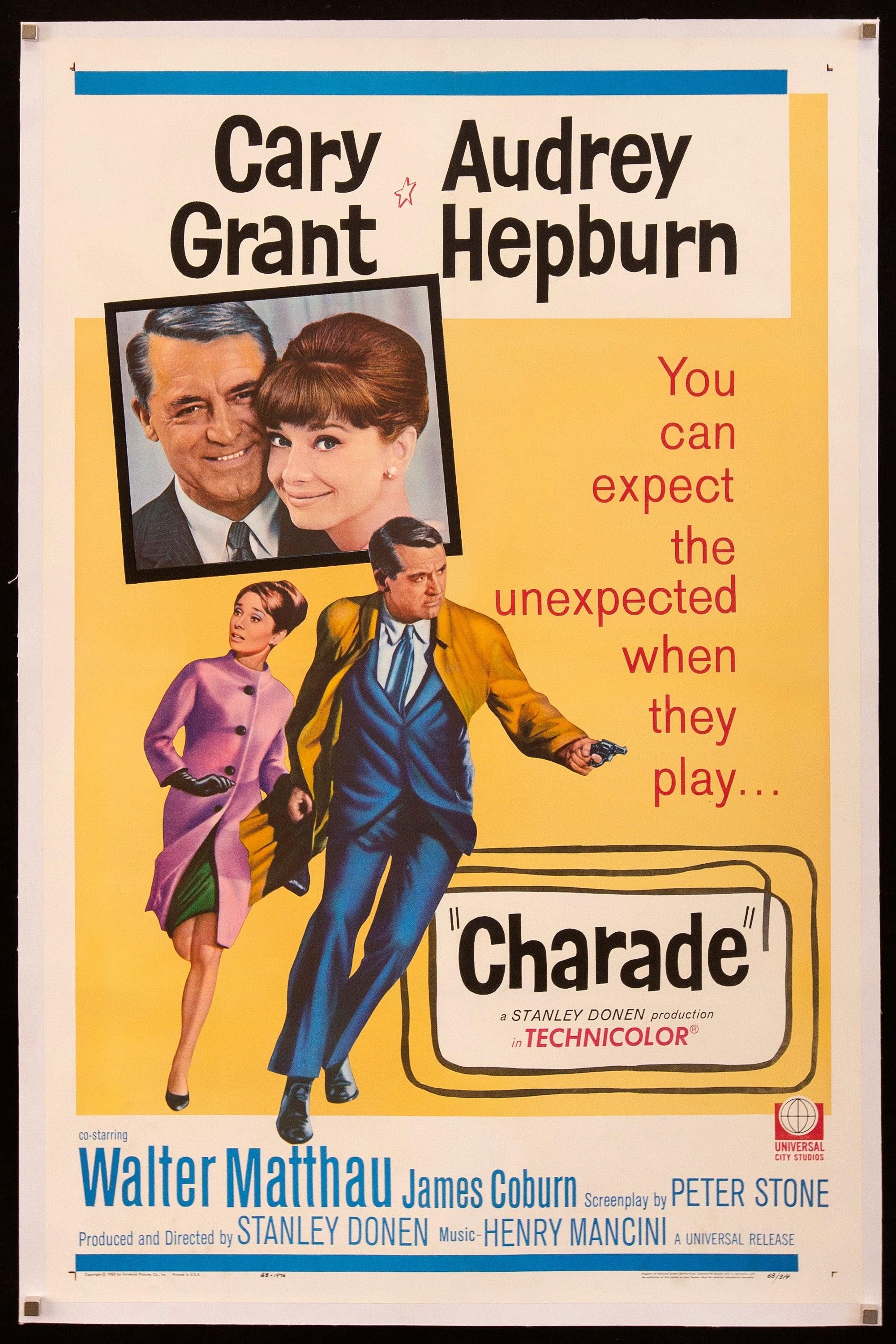
Charade
- Release Date
- December 25, 1963
- Rating
- NR
- Runtime
- 1 hr 53 min
Watch on Kanopy
8 ‘Phone Booth’ (2002)
Director: Joel Schumacher
In this claustrophobic thriller, Colin Farrell is Stu Shepard, a fast-talking and morally gray publicist who, while using a public phone booth, finds himself trapped by an unseen sniper armed with a high-powered rifle. The caller, a mysterious and menacing figure (voiced by Kiefer Sutherland), reveals that he knows Stu’s darkest secrets and forces him into a high-stakes game of life and death. As the police, led by a determined detective (Forest Whitaker), close in on Stu, the phone booth becomes a pressure cooker of suspense, deception, and psychological warfare.
Intriguingly, screenwriter Larry Cohen actually pitched Hitchcock the idea of a thriller unfolding in real-time in a phone booth, but the project never came to fruition as they couldn’t think of a plot device to explain why the protagonist was trapped. Cohen later completed the script in the ’90s after coming up with the idea of a sniper forcing him to remain in the booth.
Phone Booth
- Release Date
- September 9, 2002
- Rating
- R
- Runtime
- 81
Watch on Hulu
7 ‘Diabolique’ (1955)
Director: Henri-Georges Clouzot
Diabolique is a classic thriller directed by Henri-Georges Clouzot, sometimes called “The French Hitchcock.” It unfolds in a gloomy and oppressive boarding school, where the sadistic headmaster, Michel Delasalle (Paul Meurisse), torments both his wife, Christina (Véra Clouzot) and his mistress, Nicole (Simone Signoret). Fueled by their shared misery and desperation, the two women conspire to murder Michel and dispose of his body in a swimming pool. However, their plan takes a sinister turn when his corpse mysteriously disappears.
A key entry in the psychological horror subgenre and an outright classic of French cinema, Diabolique is renowned for its eerie atmosphere, expertly crafted tension, and narrative that keeps audiences guessing. Clouzot was an admirer of Hitchcock and, in turn, Hitchcock’s own Psycho was hugely influenced by Diaboloque.
Watch on Criterion
6 ‘Dead Again’ (1991)
Director: Kenneth Branagh
Kenneth Branagh‘s versatility as a director is seriously underrated. How many other filmmakers can claim to have directed Shakespeare adaptations, a Marvel movie, a Jack Ryan flick, multiple murder mystery comedies, and suspense? He delivers probably his purest thriller in Dead Again, about an amnesiac woman named Grace (Emma Thompson), who is haunted by nightmares of a murder she committed in a previous life. Seeking to uncover her true identity, she enlists the help of Mike Church (Branagh), a private investigator with a keen interest in solving the puzzle of her past.
Here, Branagh channels Hitchcock and Orson Welles, producing a thriller that feels like a combination of Rebecca, Psycho, Dial M for Murder, and Spellbound. Dead Again holds up remarkably and remains watchable today. Anyone who’s seen A Haunting in Venice and is looking for more Branagh mystery goodness should start here.
Watch on Paramount+
5 ‘Blood Simple’ (1984)
Directors: Joel and Ethan Coen
The Coen Brothers hit the ground running with their feature debut, serving up a delightfully dark and twisted neo-noir that brims with confidence. Blood Simple spins a labyrinthine plot filled with deception and moral ambiguity, set in the dusty backroads of Texas. The story centers on a seedy bar owner, Julian Marty (Dan Hedaya), who suspects his wife, Abby (Frances McDormand), of having an affair with one of his employees, Ray (John Getz). Fueled by jealousy and paranoia, he hires a private detective (M. Emmet Walsh) to confirm his suspicions.
Blood Simple is lean and mean, breezing by at just 96 minutes and paying extensive homage to pulp crime stories and low-budget horror. Equal parts violent and hilarious, Blood Simple is enjoyable in its own right while hinting at the masterworks the Coens would go on to create. It might not flaunt its Hitchcockian sensibilities, but the Master of Suspense’s influence is apparent in the cinematography and twisting narrative.
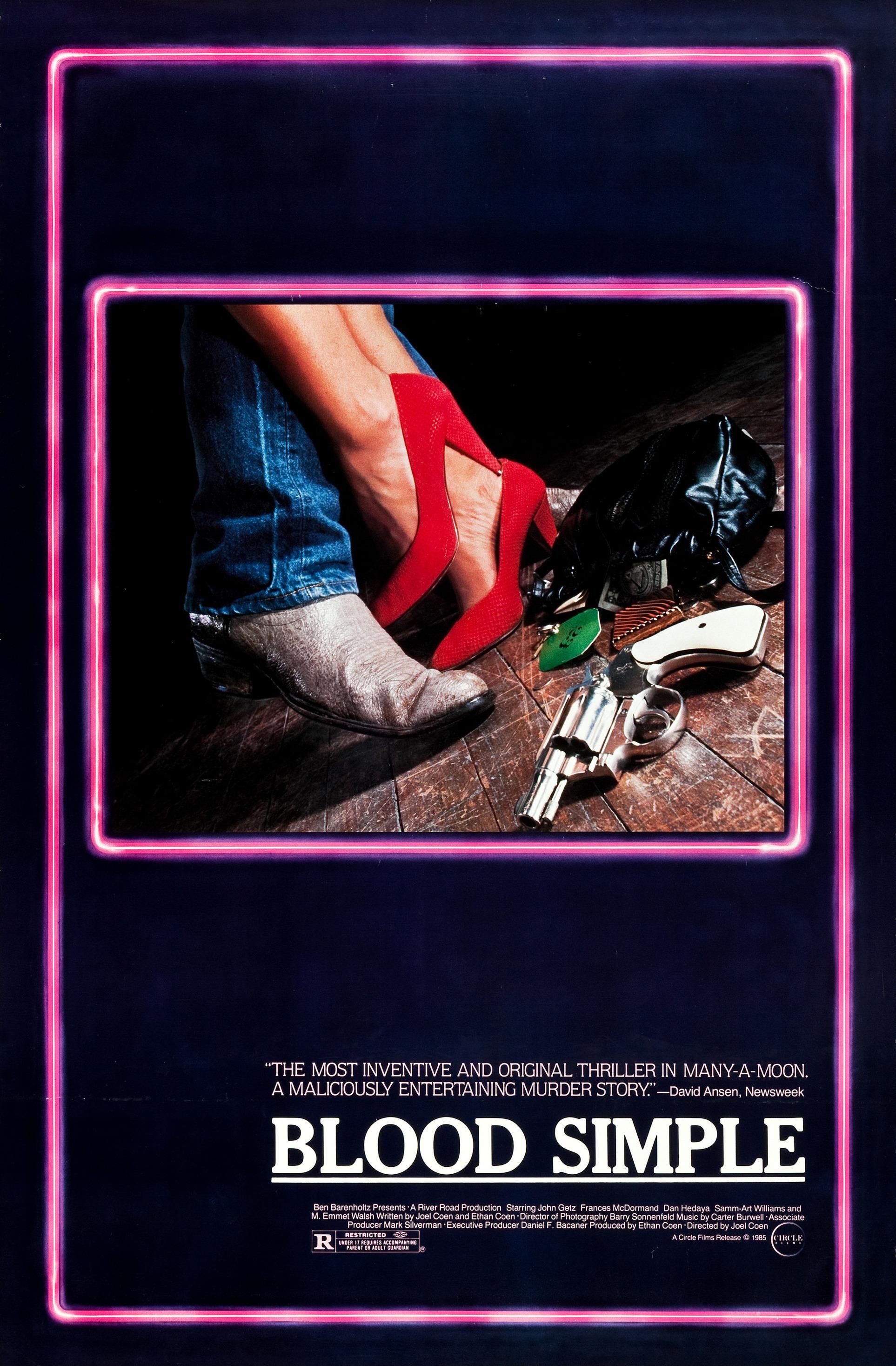
Blood Simple
- Release Date
- January 18, 1985
- Rating
- R
- Runtime
- 99 minutes
Watch on Criterion
4 ‘The Game’ (1997)
Director: David Fincher
Nicholas Van Orton (Michael Douglas), an investment banker, lives a solitary and routine life. On his 48th birthday, his estranged brother Conrad (Sean Penn) gives him a mysterious gift: the opportunity to participate in a real-life, high-stakes game that promises to change his life. As Nicholas becomes immersed in the elaborate and increasingly dangerous series of challenges, he descends into a world where reality and illusion blur, and he must unravel the truth behind the game while trying to stay alive.
Visually, The Game pays a lot of tribute to Hitchcock. Narratively, too, it rhymes with the Master of Suspense’s work regarding the protagonists’ moral struggle, a dilemma perfectly brought to life by Douglas; the harder Nicholas tries to escape the conspiracy, the deeper he sinks into its clutches. The Game was a box office disappointment compared to the success of Se7en, but it has since developed a cult following among David Fincher‘s fans.
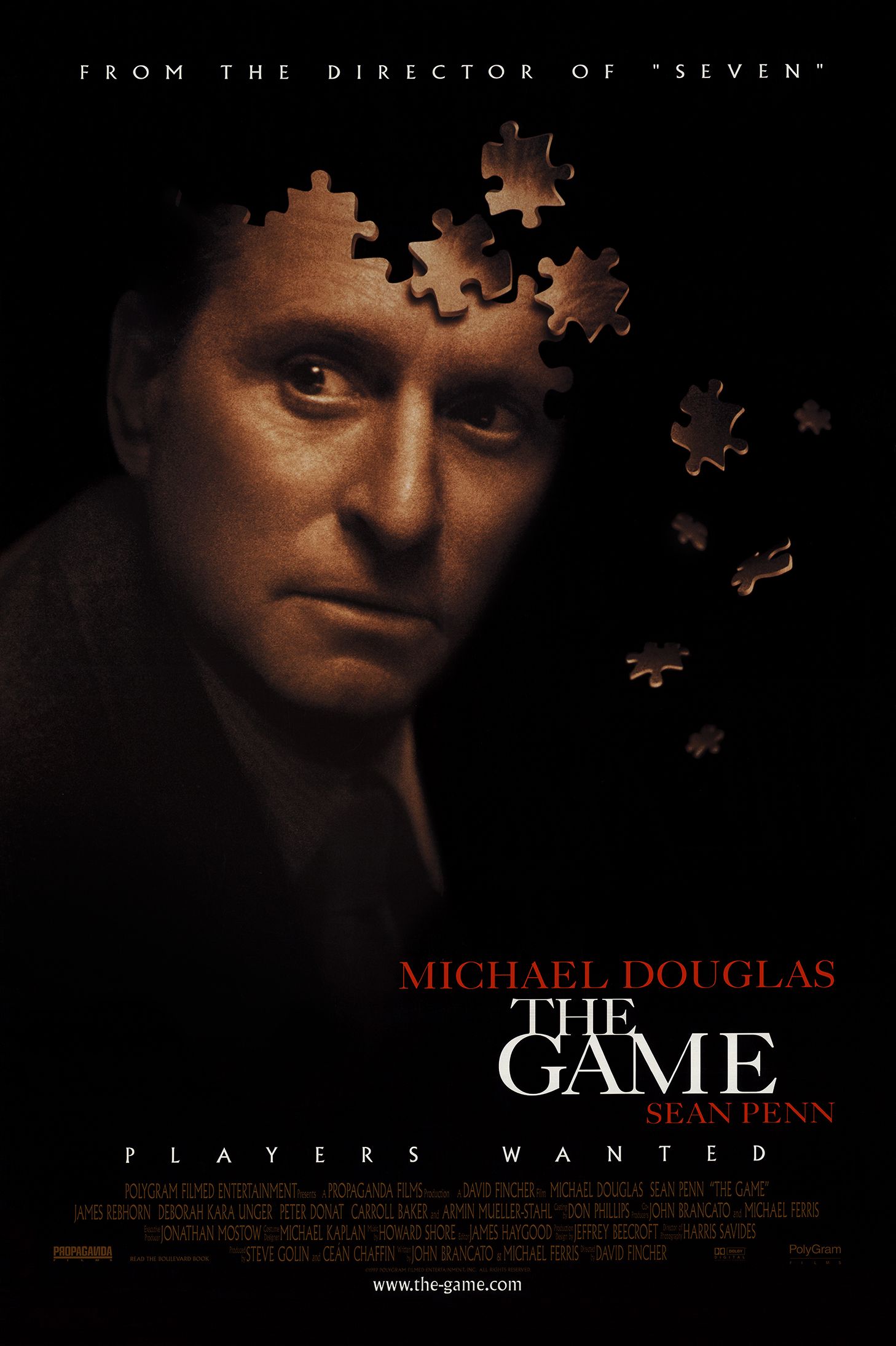
The Game
- Release Date
- September 12, 1997
- Rating
- R
Watch on Tubi
3 ‘Cape Fear’ (1991)
Director: Martin Scorsese
In this Scorsese gem, lawyer Sam Bowden (Nick Nolte) becomes the target of Max Cady (Robert De Niro), a relentless and cunning ex-convict. Cady is driven by a thirst for revenge against Bowden for failing to represent him adequately in a criminal case years earlier. He unleashes a campaign of terror on the Bowdens that escalates to terrifying levels.
As the story suggests, Hitchcock’s films were a conscious and significant source of inspiration for Cape Fear, one of Scorsese’s wildest movies. Composer Elmer Berstein reworks the original score by Hitchcock collaborator Bernard Hermann; Hitchcock title designer Saul Bass created the opening title sequence; and many of the camera angles and editing techniques are lifted directly from Hitchcock movies.
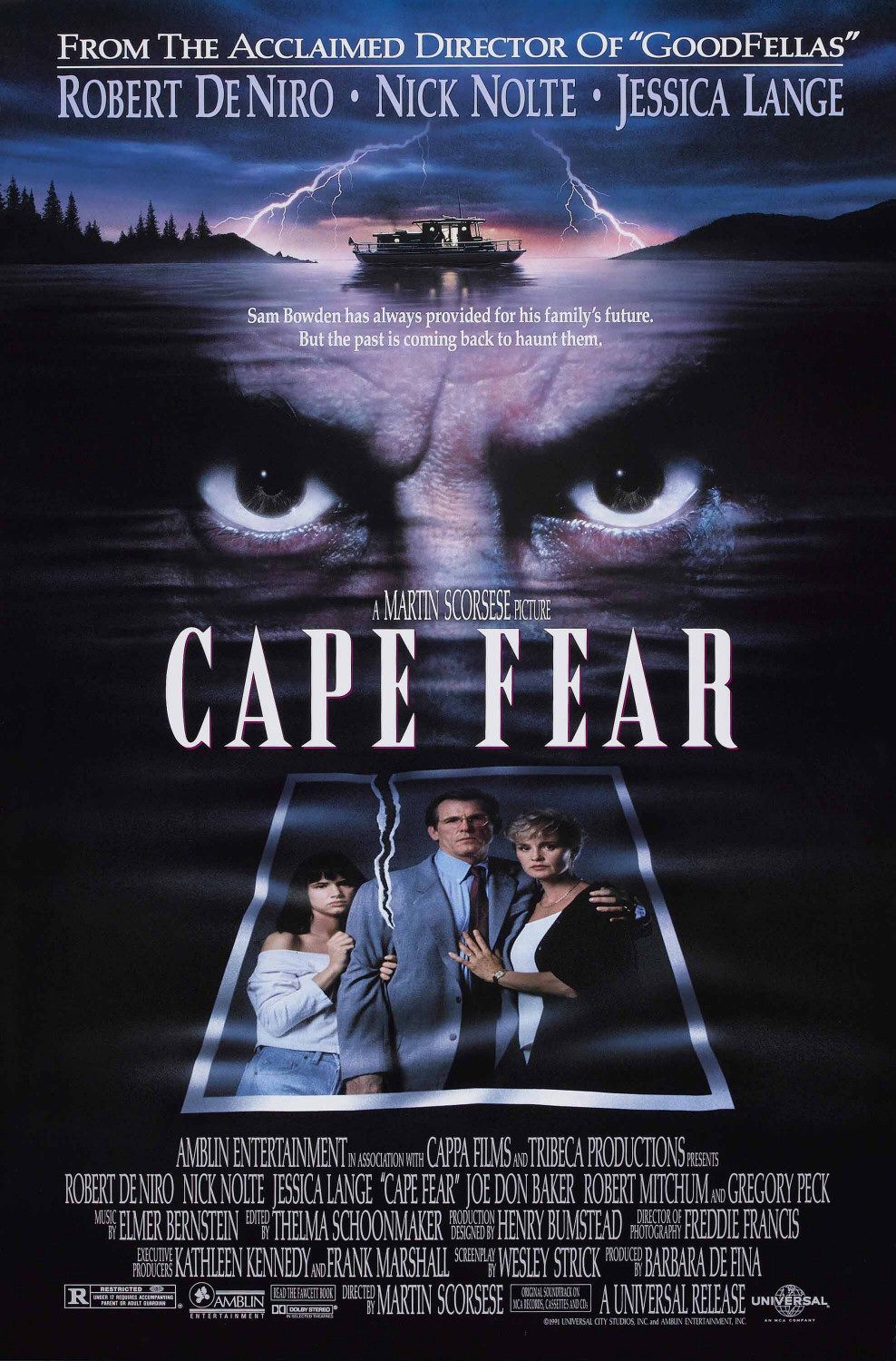
Cape Fear
- Release Date
- November 15, 1991
- Rating
- R
- Runtime
- 128 minutes
Watch on Apple TV
2 ‘Side Effects’ (2013)
Director: Steven Soderbergh
Steven Soderbergh is another directorial polymath who excels in many genres. With Side Effects, he flexes his talent for psychological suspense. Rooney Mara stars as Emily Taylor, a young woman suffering from severe depression following her husband’s release from prison. As a result, her psychiatrist, Dr. Jonathan Banks (Jude Law), prescribes a new, experimental medication. Emily’s mental state seemingly improves, but the drug has a side effect: sleepwalking. During one of these episodes, a sleeping Emily stabs her husband to death.
Side Effects borrows a lot from Hitchcock, Clouzot, and Brian De Palma while still feeling fresh and distinctly Soderbergh. The script is smart, the directing assured and economical, and Mara’s lead performance is fantastic, crafting an alluring and complicated heroine that would make Hitch proud. Unfortunately, Side Effects didn’t receive half the attention it deserved, becoming one of the most unsung films within Soderbergh’s resumé.
Side Effects
- Release Date
- February 7, 2013
- Rating
- R
- Runtime
- 100
Watch on Amazon
1 ‘Dressed to Kill’ (1980)
Director: Brian De Palma
Many directors draw inspiration from Hitchcock, but his true heir is Brian De Palma, the filmmaker behind violent delights like Sisters, Carrie, and Blow Out. Perhaps his most Hitchcockian project is Dressed to Kill, a razor-sharp and provocative thriller that chronicles the events leading to the murder of housewife Kate Miller (Angie Dickinson). Another woman, Liz Blake (Nancy Allen), discovers the body and starts investigating the case with help from Kate’s son Peter (Keith Gordon).
It sounds like a fairly standard thriller premise, but bravura directing, twists aplenty, and a fantastic performance from Michael Caine elevate Dressed to Kill above the competition. It’s like a modern take on Psycho, with more naturalistic performances, even more inventive cinematography, and a ton more violence. The film walks a razor’s edge between thrills and bad taste. Its critics would say it ultimately stumbles, but there’s no denying De Palma’s devil-may-care intensity and storytelling flair.
Watch on Kanopy
Source link

